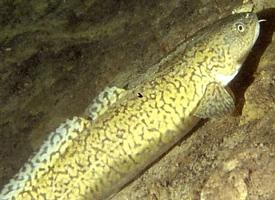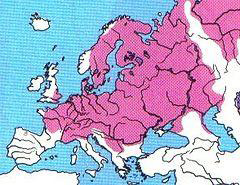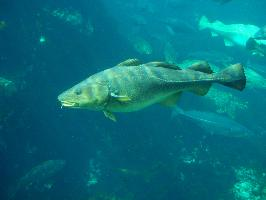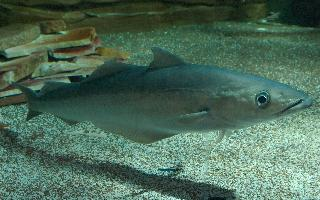
Súlyok és méretek
| Hossz | 1,2 m |
|---|---|
| Súly | 34 kg |
Biológiai adatok
| Élettartam | 20 r |
|---|
Veszélyeztetettség
| Rettenthetetlen |
Állatleírás
The Burbot (Lota lota) is a fascinating and unique species of freshwater fish, holding the distinction of being the only gadiform (cod-like) fish inhabiting both freshwater and brackish environments. Often referred to by various names such as the freshwater cod, lawyer, and eelpout, the burbot is easily recognizable by its elongated, eel-like body, which can grow up to a meter in length in certain instances, though most specimens are much smaller.One of the most striking features of the burbot is its skin, which is smooth and lacks scales, covered instead by a layer of mucus. This, coupled with its single barbel on the chin—reminiscent of those found on catfish—gives the burbot a distinctive appearance. The coloration of this species is quite variable, often a reflection of its surroundings. Typically, its dorsal side displays a mottled pattern of green, brown, or black, blending seamlessly into its environment, while its ventral side tends to be lighter, usually a pale yellow or white.
Burbot are found in cold, freshwater environments across the Northern Hemisphere, including North America, Europe, and Asia. They exhibit a preference for the bottom of deep lakes and slow-moving rivers where the water temperature is below 10°C (50°F), showcasing their adaptation to cold environments. Remarkably, burbot are the only fish species known to spawn during winter under the ice, a unique reproductive strategy that ensures their survival in frigid waters.
The diet of the burbot is as varied as its habitat, with these opportunistic predators feeding on a wide range of prey including fish, insects, and small mammals. Their method of hunting is primarily nocturnal, relying on their keen sense of smell to locate food in the dark waters.
Despite their widespread distribution, burbot populations have faced declines in certain areas, attributed to factors such as habitat destruction, pollution, and the impacts of climate change. These threats have sparked conservation efforts aimed at understanding and mitigating the pressures on burbot populations to ensure their long-term survival.
In terms of economic importance, burbot are valued both as a commercial and sport fish. Their flesh is highly prized for its taste and texture, often compared to that of lobster, leading to a demand in culinary circles. Furthermore, their unique behavior and challenging catch conditions make them a sought-after species among ice fishing enthusiasts.
In summary, the burbot (Lota lota) is a remarkable fish species with a suite of unique adaptations that allow it to thrive in cold water environments. Its intriguing life history, coupled with its significance to both ecosystems and humans, underscores the importance of ongoing research and conservation efforts to safeguard its future.
Előfordulási térkép

Hasonló állatok
Új állatfotók
Top 10 állat
- Dolphin gull (Leucophaeus scoresbii)
- Diana monkey (Cercopithecus diana)
- Japanese macaque (Macaca fuscata)
- Stone loach (Barbatula barbatula)
- Galápagos tortoise (Geochelone nigra complex)
- Moustached guenon (Cercopithecus cephus)
- Russian tortoise (Testudo horsfieldii)
- Common house mosquito (Culex pipiens)
- Japanese spider crab (Macrocheira kaempferi)
- Giant peacock moth (Saturnia pyri)

